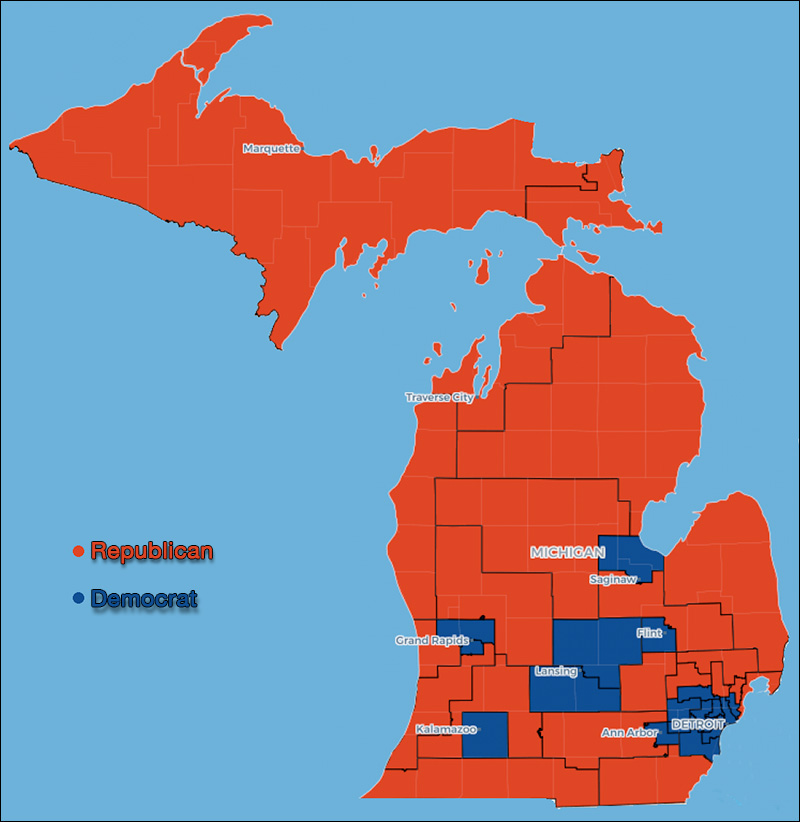By Jim Ellis — Wednesday, Feb. 15, 2023
President
New Hampshire: Two Interesting Visitors — A pair of individuals are soon making trips to New Hampshire with obvious presidential intentions. Robert F. Kennedy Jr. (D), son of the late US senator and Attorney General Robert F. Kennedy and anti-vax proponent, is scheduling public appearances. Should he enter the New Hampshire Democratic primary, we could see some interesting ramifications develop.Entrepreneur Vivek Ramaswamy, who runs an investment firm specializing in the healthcare and technology sectors, is a best-selling author and made national news opposing the corporate woke culture and Environmental, Social & Governance (ESG) investing, is also making public appearances in the Granite State. Ramaswamy’s personal wealth is reportedly in the hundreds of millions range, so he will have the assets necessary to deliver a message in many primary states. It is presumed he would enter the Republican primaries.
Senate
Montana: New Poll Gives Sen. Tester Small Leads — The Political Company, a Montana-based survey research firm, just released hypothetical numbers for the state’s upcoming 2024 Senate race, sure to be one of the top such contests in the country. The poll (Jan. 30-Feb. 1; 53 likely Montana general election voters; live interview & text) finds Sen. Jon Tester (D), who has yet to announce his 2024 political intentions, either leading or tied with what would presumably be his top three potential challengers.
The senator’s strongest opponent would be Gov. Greg Gianforte (R), who would begin in a 45-45 percent ballot test tie with Sen. Tester according to the new data. Sen. Tester would post small leads against Reps. Matt Rosendale (R-Glendive) and Ryan Zinke (R-Whitefish). Opposite Rep. Rosendale, the senator’s advantage would be 45-40 percent, while he would fare slightly better against Rep. Zinke at 46-40 percent. None of the three has yet announced they will run for Senate, but Rep. Rosendale is reportedly the most likely to launch a campaign. Gov. Gianforte is also on the ballot for re-election in 2024.
Clearly the state has moved to the right since Sen. Tester defeated Rosendale 50-47 percent in 2018. The fact that he is well below 50 percent against all three men is a clear signal that he will be in a dogfight for re-election should he seek a fourth term. The senator said he will make his decision about running again before the end of March.
House
CA-13: Adam Gray (D) Files 2024 Committee with FEC — California former state Assemblyman Adam Gray (D), who lost the second closest 2022 congressional election — a 565-vote result opposite now freshman-Rep. John Duarte (R-Modesto) — has filed a new 2024 committee with the Federal Election Commission. Prior to this action, Gray had said little about running again.
Viewed as the clear favorite at the beginning of the ’22 race, Gray failed to win the seat, and even placed behind Duarte in the June jungle primary. On paper, the new 13th District favors the Democrats. The FiveThirtyEight organization rates the seat D+7, while Dave’s Redistricting App scores the partisan lean as 53.7D – 43.9R. At this point, Democrats Phil Arballo, a former two-time congressional contender, retired Army Col. Brad Boyd, and educator Angelina Rosario Sigala have all declared their candidacies. Regardless of who becomes the Democratic finalist, this race will be a top-tier national Democratic conversion target.







